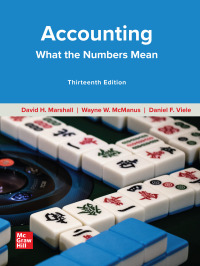


On January 2, Year 6, Purl Co. purchased 90% of Strand Co.'s outstanding common stock at a price that was in excess of Strand's equity. Purl and Strand had no previous equity interests in each other. The price includes additional consideration contingent upon the attainment of certain future earnings levels. On that date, the fair values of Strand's assets and liabilities equaled their carrying amounts. Moreover, Purl will recognize as part of the acquisition certain separable intangible assets distinct from goodwill that were not recognized by Strand. Purl also incurred substantial direct costs to effect the combination in addition to indirect and general expenses. Transactions during Year 6 were as follows: On February 15, Year 6, Strand sold equipment to Purl at a price higher than the equipment's carrying amount. The equipment had a remaining life of 3 years and was depreciated using the straight-line method by both companies. On November 15, Year 6, both Purl and Strand paid cash dividends to their respective shareholders. On December 31, Year 6, Purl recorded its equity in Strand's earnings. The following list of accounts may or may not be included in Purl and Strand's consolidated financial statements. The choices below refer to the possible ways those accounts may be reported in Purl's consolidated financial statements for the year ended December 31, Year 6. Select from the option list provided the reporting method for each account below. Each choice may be used once, more than once, or not at all. The following list of accounts may or may not be included in Purl and Strand's consolidated financial statements. The choices below refer to the possible ways those accounts may be reported in Purl's consolidated financial statements for the year ended December 31, Year 6. Select from the option list provided the reporting method for each account below. Each choice may be used once, more than once, or not at all. Account Reporting method 1. Cash 2. Equipment 3. Investment in subsidiary 4. Common stock 5. Beginning retained earnings 6. Dividends paid Settt an option below Sum of the amounts on Purl's and Strand's separate unconsolidated financial statements O Less than the sum of the amounts on Purl's and Strand's separate unconsolidated financial statements but not the same as the amount on either separate unconsolidated financial statement O Same as the amount for Purl only O Same as the amount for Strand only Eliminated entirely in consolidation









